Another Trump case at the Supreme Court? His argument for immunity could be a tough sell
WASHINGTON – Former President Donald Trump is expected to try to appeal Tuesday's scathing lower court ruling that said he isn't immune from charges that he tried to unlawfully overturn the 2020 election. He may not get a sympathetic audience with the Supreme Court.
A three-judge panel of the D.C. Circuit Court of Appeals on Tuesday forcefully rejected Trump's claim of immunity from prosecution for the potential crimes tied to trying to stay in office despite losing the election.
Trump is expected to appeal that decision to the Supreme Court, with the dual aim of pushing his expansive vision of presidential immunity and delaying his federal trial for allegedly attempting to steal the 2020 election − ideally until after he has regained the White House, and with it the power to order the Department of Justice to drop its charges.
Many legal scholars say the Supreme Court is unlikely to embrace Trump's expansive immunity claims. And the appeals court has taken measures to limit Trump's ability to delay his trial by setting a Monday deadline for Trump to ask the Supreme Court to keep his case on hold.
“I think there’s a strong chance the Supreme Court will unanimously uphold this,” Michael Waldman, president of the Brennan Center for Justice at New York University's law school, told USA TODAY. "The question to me is not how the court will rule, but when."
A Supreme Court review could move briskly or run for months, depending on how swiftly the justices want to act.
A trial date in limbo
Of the four criminal cases Trump is currently facing, special counsel Jack Smith's case against Trump for allegedly illegally attempting to overturn the election was slated by late last year to be Trump's first 2024 criminal trial.
Customary deadlines for filing Supreme Court arguments run for months at a time and routine cases filed at this point in the year could be heard in the fall, which could potentially put off a decision into 2025. The high court previously declined in December a request from Smith to review Trump's appeal immediately, before the Circuit Court weighed in.
U.S. District Judge Tanya Chutkan had scheduled Trump's trial for March 4, but suspended pre-trial deadlines and eventually postponed the trial date as Trump's appeal unfolded. The appeals court said the suspension will expire Monday unless Trump asks the Supreme Court to keep it in place by then. At that point, it will be up to the high court whether to keep the case on hold while it decides whether to hear the case.
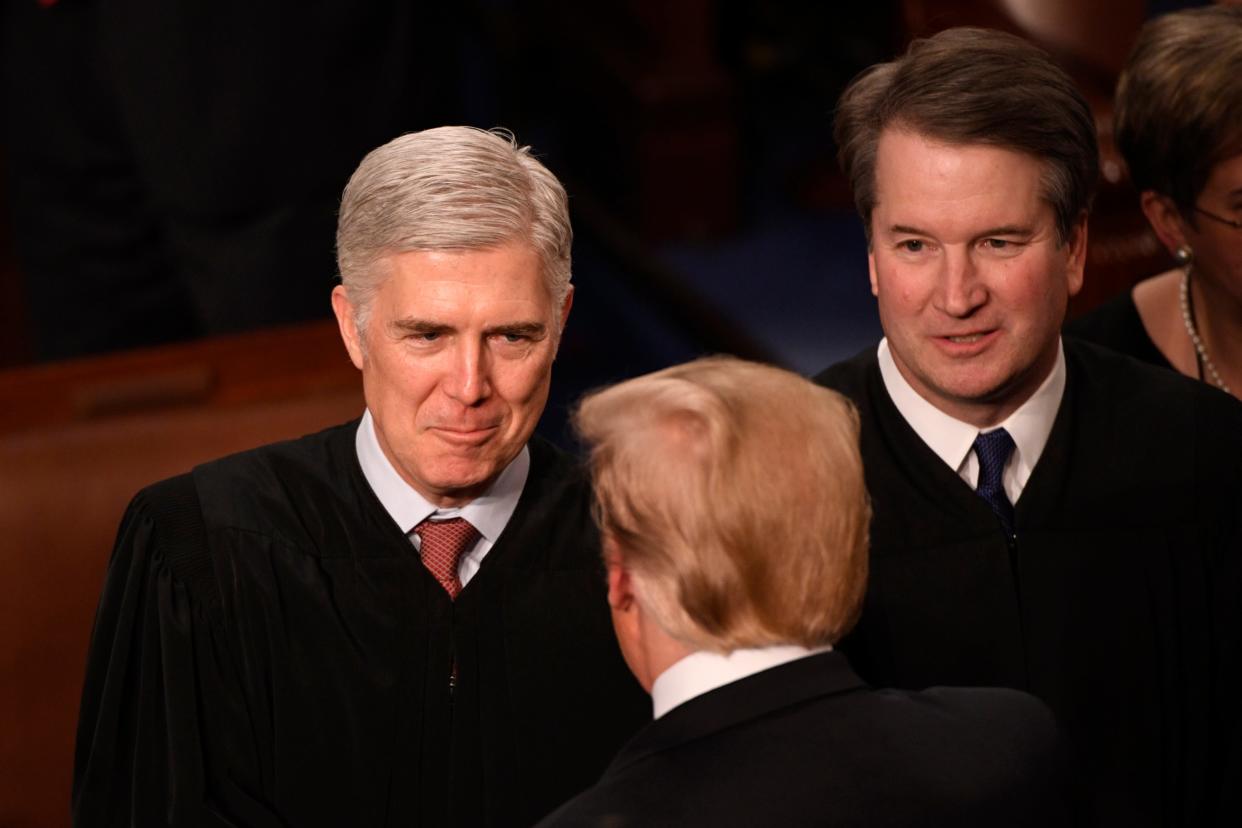
"It puts the Supreme Court in the hot seat, gives Trump only six days to write this petition on an emergency basis, and it's going to be one of the most significant things that the Supreme Court does in relation to the 2024 election,” said Rick Hasen, a professor and election law expert at the University of California, Irvine School of Law, on CNN International.
Waldman said the Supreme Court might not take the case, which would leave the appeals court decision in place, but the high court is also capable of moving cases quickly within days or weeks. In Bush v Gore, which determined the outcome of the 2000 election, the Florida Supreme Court had ordered a hand recount of ballots on Dec. 8, 2000, and the U.S. Supreme Court halted the count on Dec. 12. In the latest case, the Colorado Supreme Court ordered Trump off the ballot on Dec. 19, 2023, Trump appealed Jan. 3 and the Supreme Court set arguments for Feb. 8.
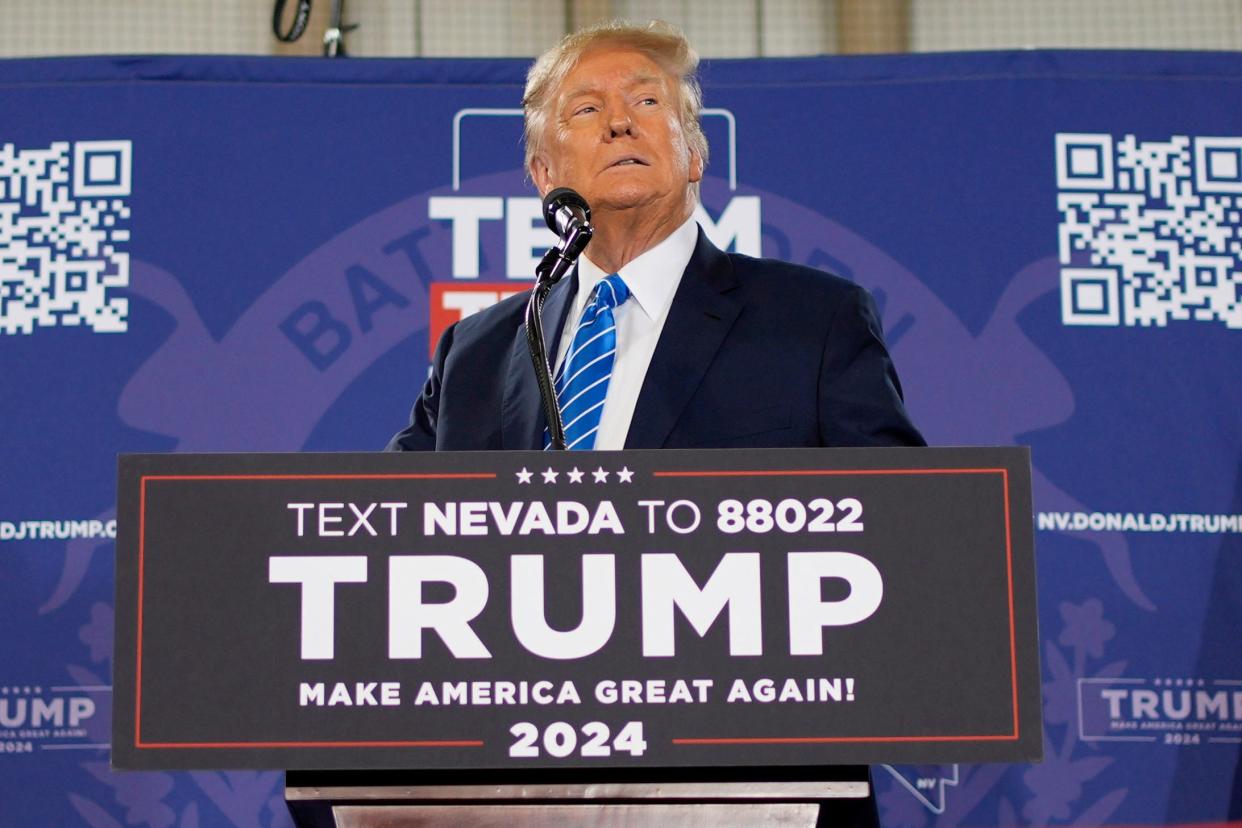
A strategic dilemma for Trump
Trump could try to slow the process down even further by asking the full D.C. Circuit of 11 judges to consider the case before the Supreme Court. But Chutkan could schedule a trial if he chooses that route, unless the full D.C. Circuit grants him a new stay while that is adjudicated. The full circuit also could refuse to hear Trump's case and let the panel's decision stand.
If Trump heads straight to the Supreme Court and it agrees to hear the case, at least five of the nine justices would need to agree to continue postponing the trial.
“The Supreme Court can move quickly," Waldman said. "And the presidency is at stake. Voters have a right to know if Trump will be convicted."
Expansive immunity claim met with skepticism
Trump's lawyers argued at the appeals court for near absolute immunity. Even if a president killed a political rival, the House would have to impeach and the Senate convict before a president could be criminally prosecuted, according to Trump lawyer John Sauer.
“If there’s no impeachment ever, and no conviction, then the official acts are immune, period,” Sauer said.
The D.C. Circuit Court's panel flatly rejected that assertion when it comes to potential crimes committed in an attempt to retain power.
"We cannot accept former President Trump’s claim that a President has unbounded authority to commit crimes that would neutralize the most fundamental check on executive power — the recognition and implementation of election results," the panel said.
Some experts argued the panel's ruling was made more powerful by coming through one voice: the three judges didn't identify who wrote the unanimous decision.
Many say the Supreme Court is likely to agree with the lower court, at least when it comes to Trump's broadest immunity claims.
“This is a landmark case, but in many ways it is an easy case," Waldman said.
Noting that one of the judges on the panel was appointed by former President George H.W. Bush, a Republican, Waldman added, “It’s very strongly worded and strongly argued and was unanimous with appointees from presidents of different parties. It’s hard to just sneer at it and say it’s just a liberal plot."
Even though six of the nine Supreme Court justices were appointed by Republicans, including three appointed by Trump, experts say that doesn't guarantee Trump will prevail. Trump has lost other cases before the court, such as rejecting a Texas lawsuit aimed at overturning election results in four states.
Norman Eisen, a Brookings Institution senior fellow who served as special counsel to the House Judiciary Committee during Trump's first impeachment, told USA TODAY it "can't be right" that a president has an absolute right to commit crimes while in office.
"Think of the bizarre consequences of planning murders or kidnappings or bank robberies from the Oval Office," he said.
Stanford law professor David Sklansky characterized Trump's immunity argument as "totally meritless."
"It's an argument that is completely inconsistent with the idea that no one is above the law," Sklansky said.
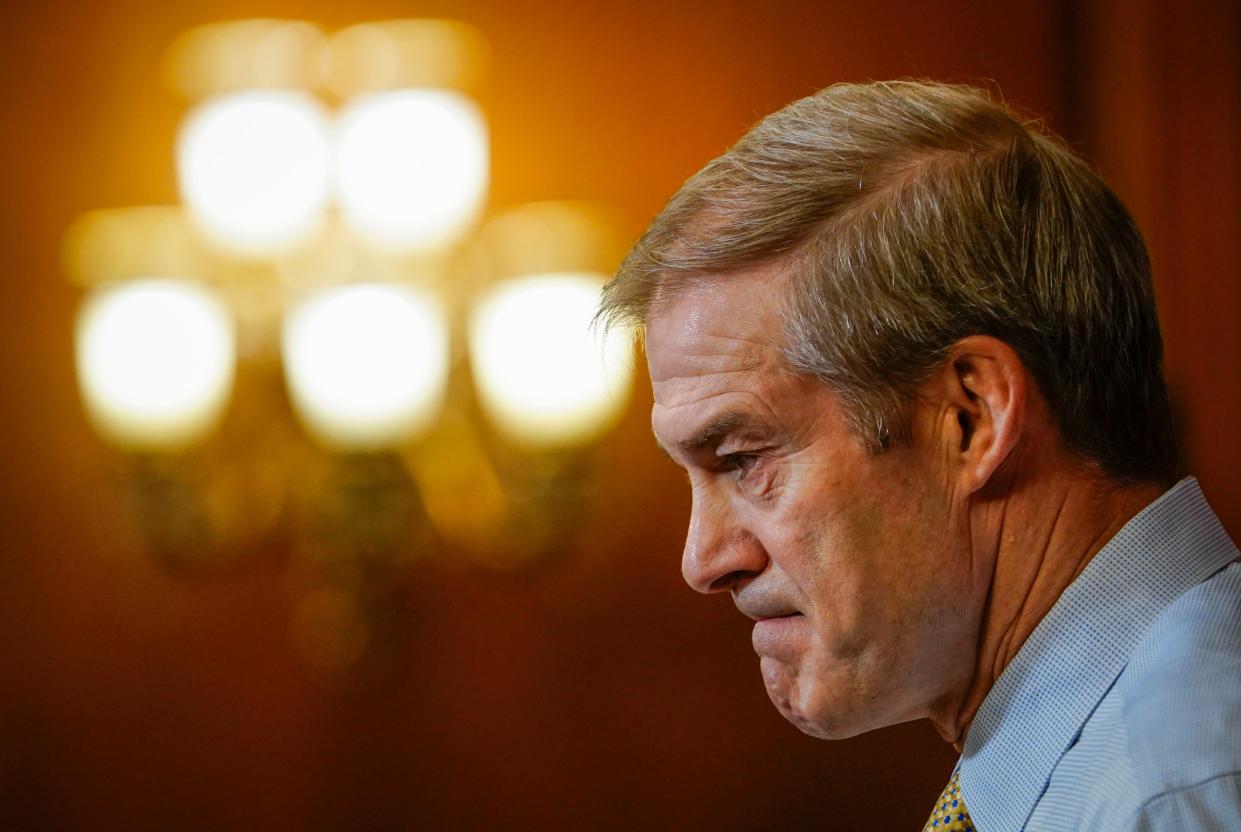
Trump continues to press for immunity
Trump and his supporters argue presidents must be protected from criminal charges after they leave office, or it will inhibit a president's actions in the White House.
Trump characterized the appeals court decision as "Nation-destroying" on his social media platform, Truth Social, posting that a president "must have Full Immunity in order to properly function and do what has to be done for the good of our Country."
Republican Rep. Jim Jordan, a Trump ally and head of the House Judiciary Committee, said the appeals decision “raises serious concerns” that would have to be addressed on appeal.
“That a President is stripped of his constitutional protections for official acts while in office is obviously something that will need to be addressed on appeal,” Jordan, R-Ohio, said in a post on X.
The Appeals Court countered that the separation of powers means the judicial branch must retain some ability to check the president.
"The court dismantled these claims patiently, painstakingly, and unsparingly," wrote George Conway, an anti-Trump Republican and longtime federal litigator, in the Atlantic.
"The separation of powers doctrine … necessarily permits the Judiciary to oversee the federal criminal prosecution of a former President for his official acts because the fact of the prosecution means that the former President has allegedly acted in defiance of the Congress’s laws," the judges wrote.
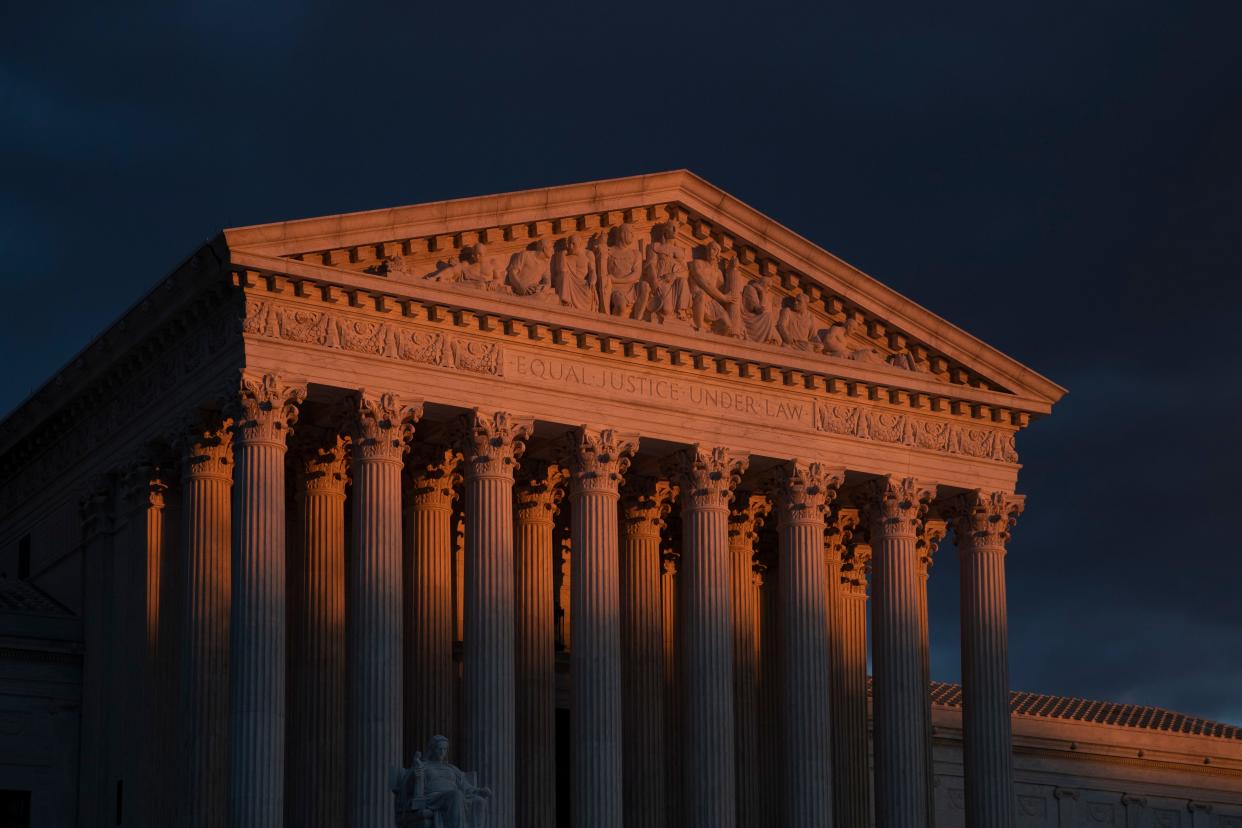
Trump continues to push for presidential immunity, despite his own past lawyers arguing otherwise
Courts have never settled the issue of post-White House presidential immunity for crimes committed while in office because no former president has ever been charged before. But many legal experts say the possibility always existed, which is why former President Gerald Ford pardoned former President Richard Nixon.
The appeals court noted that at Trump's second Senate impeachment trial, on a charge he incited the Capitol attack on Jan. 6, 2021, his own lawyers argued the charges should be heard instead in the criminal justice system.
“We have a judicial process in this country,” Trump lawyer David Schoen told the Senate on Feb. 9, 2021. “We have an investigative process in this country to which no former officeholder is immune. That is the process that should be running its course.”
Trump has argued that his alleged conduct under the federal election indictment formed part of his official acts as president.
However, Josh Blackman, a professor at the South Texas College of Law Houston, expressed skepticism about characterizing Trump's rally on Jan. 6, soon before the breach of the Capitol, as part of official conduct.
"As I look at the January 6 speech, and I said this on January 7th, this was a private act," Blackman said. "Because he was talking to supporters, he was not within the outer bounds of his official duties."
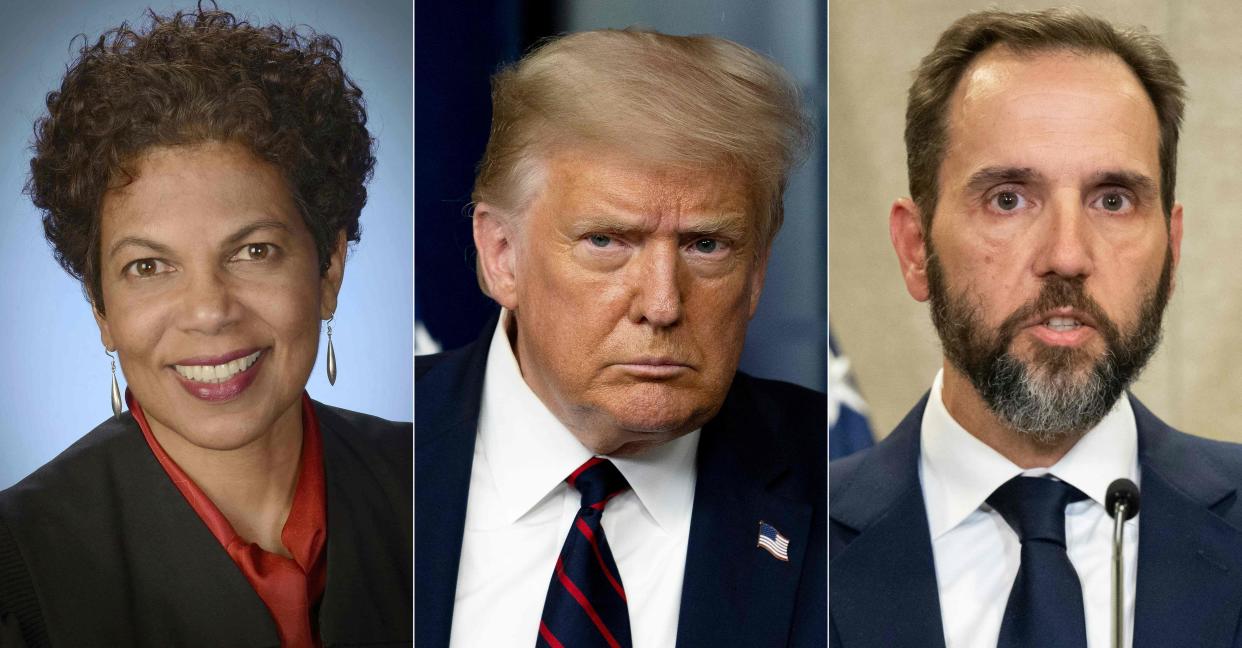
Trump's appeals could prevent decision before election: legal experts
Chutkan has already halted pretrial work on Trump's case for two months. She wrote in a January order that Trump would not lose any preparation time for his trial, meaning that even if the Supreme Court declines to hear Trump's appeal and Chutkan restarts the clock within a few weeks, the trial could not begin before early May.
If the Supreme Court agrees to hear the case and continues to postpone the trial, it could take weeks for Trump and Justice Department special counsel Jack Smith to file written arguments and then hold oral arguments. If the high court spent months collecting arguments, the eventual decision creeps closer to the election − and possibly past it.
“Everyone understands that this could well be what determines whether or not Trump can win the election, whether or not he’s going to be convicted of these crimes," Hasen said on CNN International.
This article originally appeared on USA TODAY: Trump faces tough sell with Supreme Court in appeal of immunity ruling
